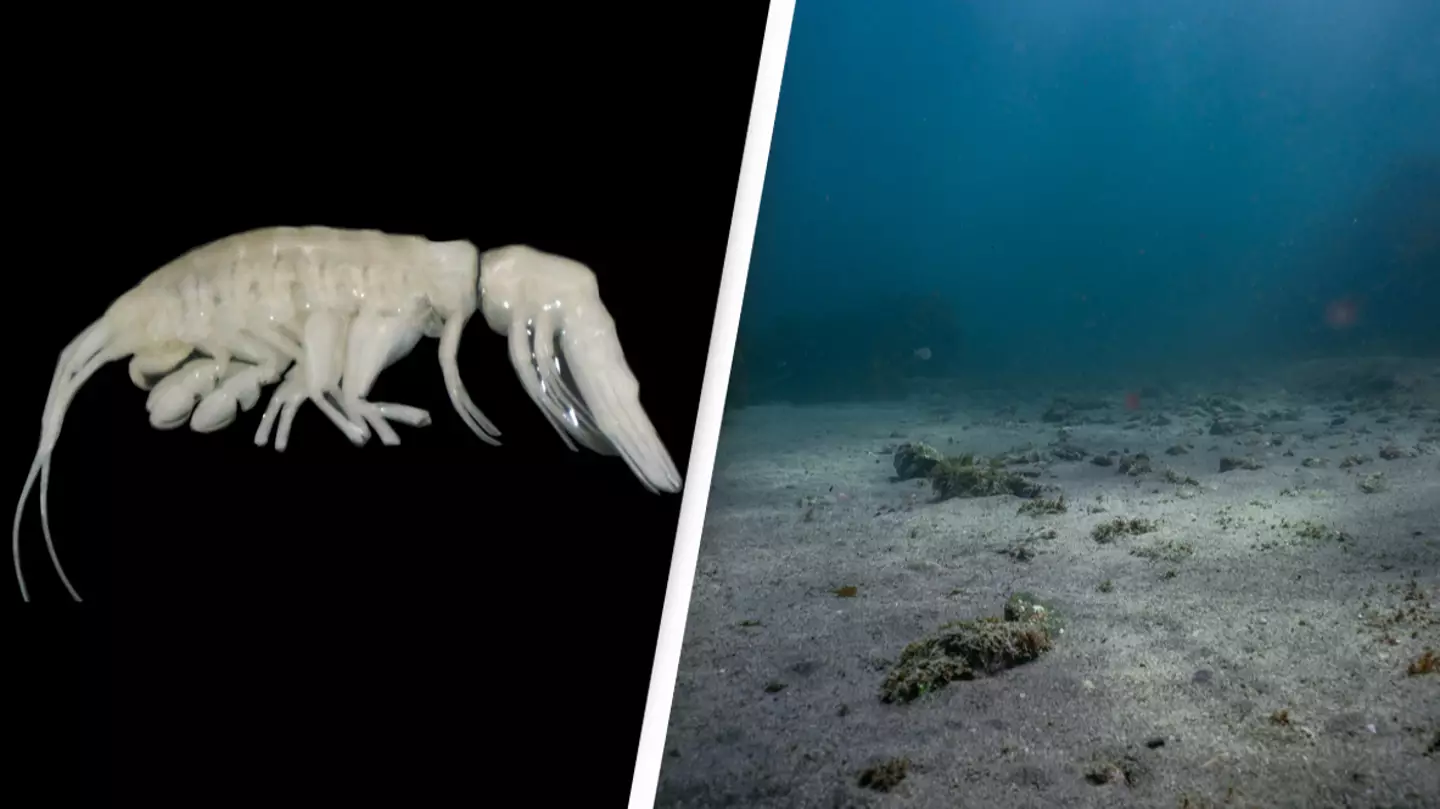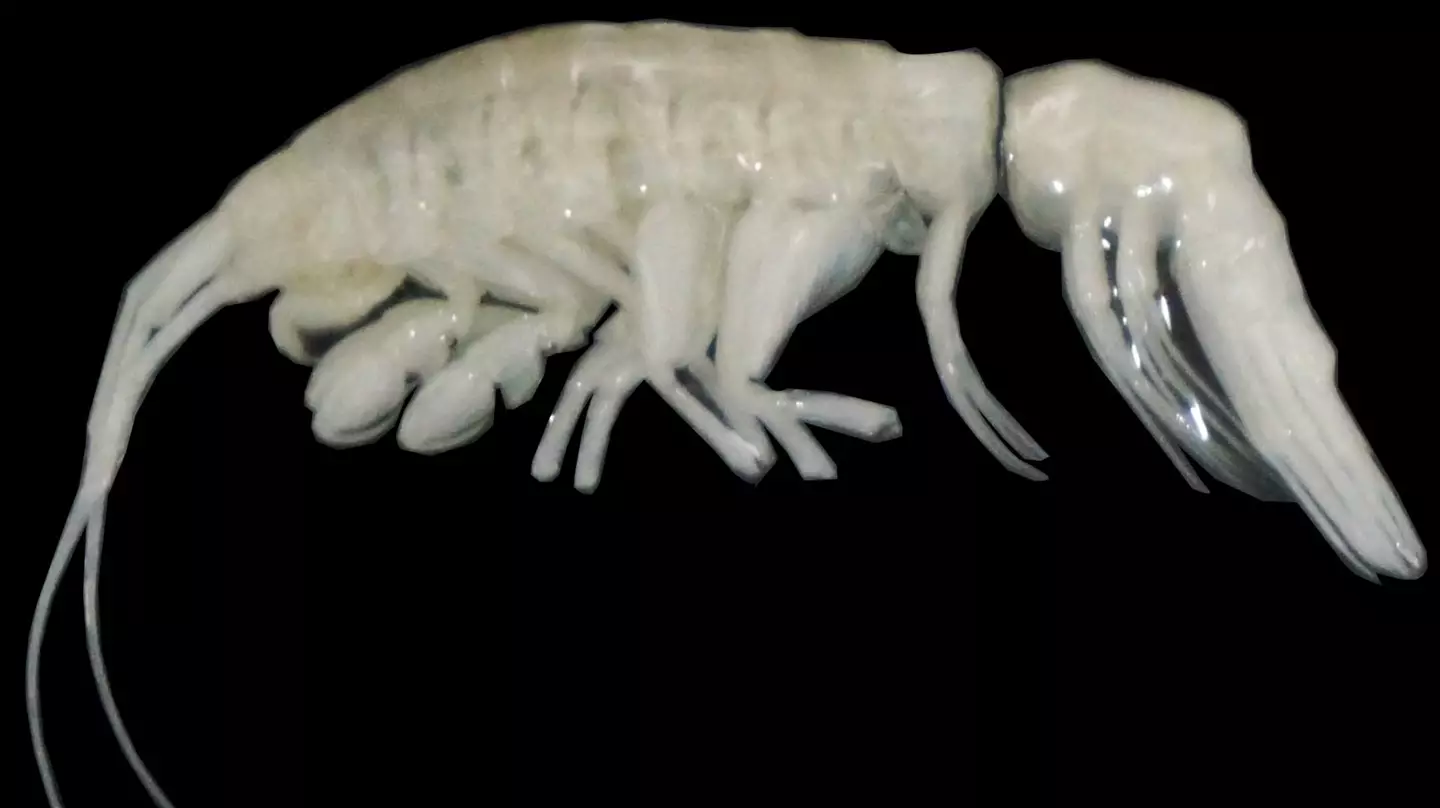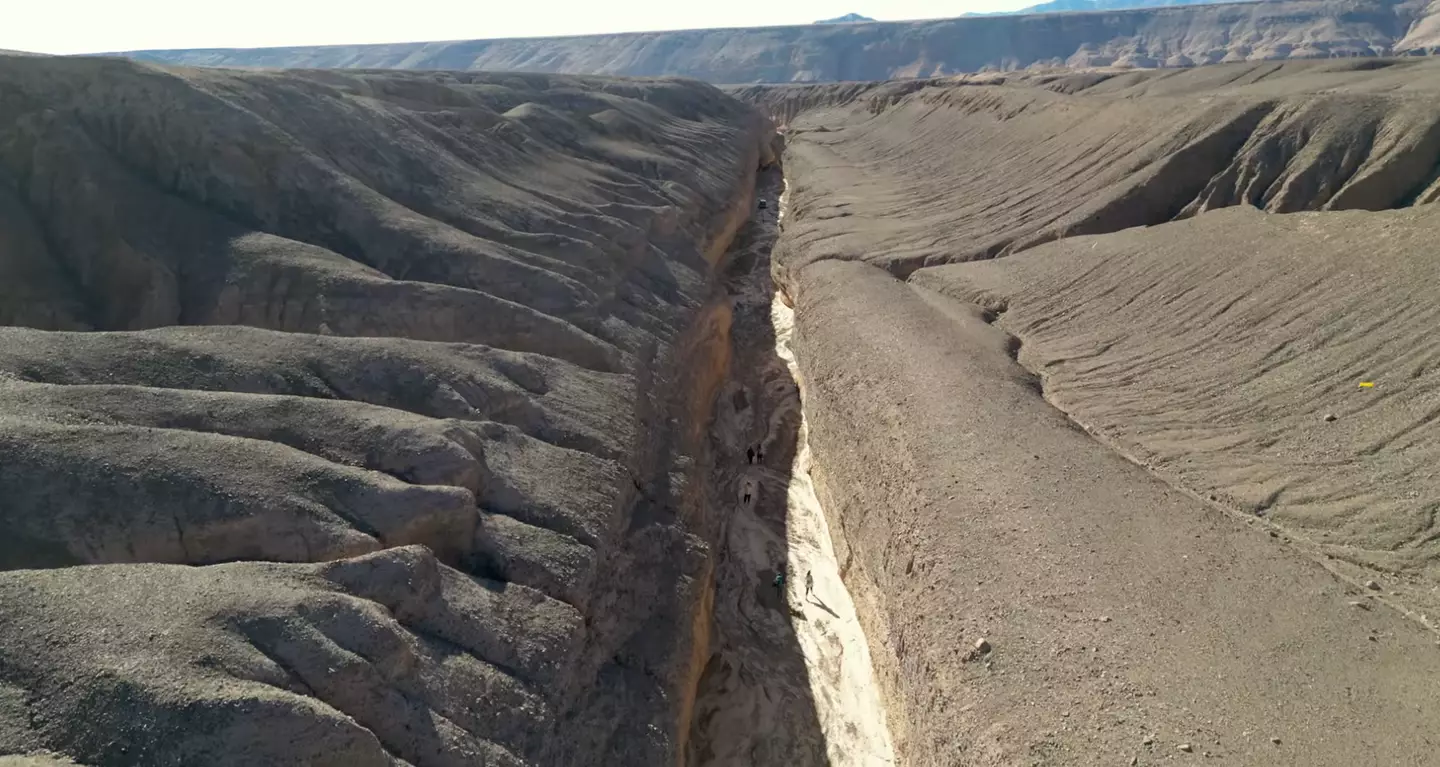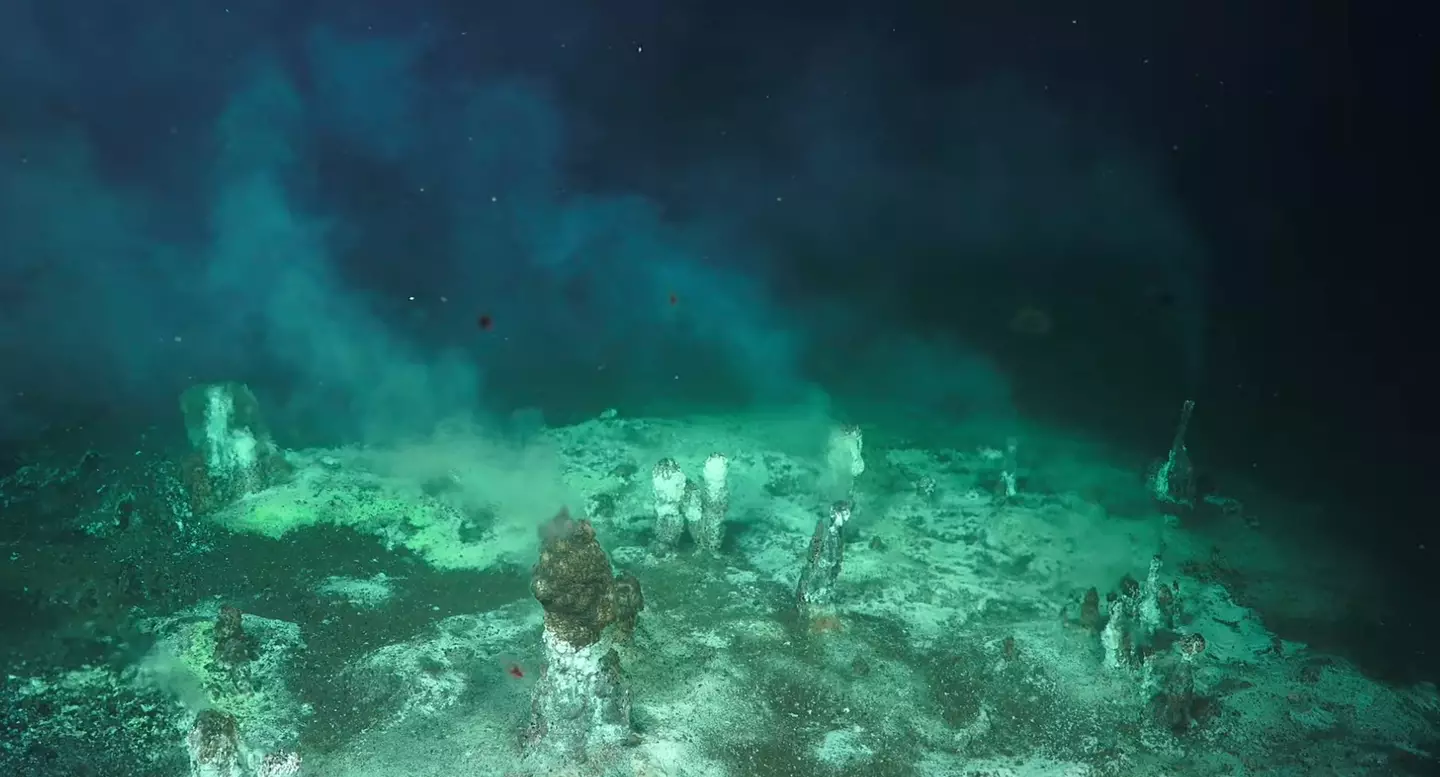
Topics: Science, Nature, World News, News

Topics: Science, Nature, World News, News
Scientists have discovered a rare predatory amphipod off the coast of Chile.
The unusual species has been named Dulcibella camanchaca, and was found in some of the deepest waters on our planet.
Described as 'alien-like', the creature is the first large, active predatory amphipod creature found in the deep-sea zone, says SciTechDaily.

Advert
The amphipod was found in the Atacama Trench over 7,900 meters down (25,900 feet) from the ocean surface, and it has been since been classified as being part of Eusiridae family, as well as being a newly identified genus.
The trench - formed by the collision of tectonic plates - is one of the deepest in the world and sits at a staggering 8,000 meters deep (26,246 feet).
The species was found during the Integrated Deep-Ocean Observing System (IDOOS) Expedition last year, but the findings have only been published in recent weeks.

Advert
While it's described as 'gigantic', the Dulcibella camanchaca is actually just under 4cm in size.
It is, however, much larger than its relatives and 'exhibits unique features, such as raptorial appendages called gnathopods' which helps it hunt for prey.
The goal of the ongoing expedition is to 'contribute to the understanding of the deep-ocean circulation and mixing in the eastern South Pacific, and particularly in the Atacama Trench, as well as of the nature and dynamics of the particle vertical flux in the hadal zone', says the Partnership for Observation of the Global Ocean website.
It was Woods Hole Oceanographic Institution (WHOI) and Instituto Milenio de Oceanografía (IMO) which made the discovery as part of the expedition - which is expected to last at least five years.
Advert

Speaking about the historic find, the study’s co-lead author, Dr. Johanna Weston, a hadal ecologist at WHOI, said: "Dulcibella camanchaca is a fast-swimming predator that we named after 'darkness' in the languages of the peoples from the Andes region to signify the deep, dark ocean from where it predates."
Carolina González, an oceanographer at the University of Concepción and co-lead author of the research, added: "This study's collaborative effort and integrative approach confirmed Dulcibella camanchaca as a new species and highlights ongoing biodiversity discoveries in the Atacama Trench."
As the expedition goes on, 'more discoveries are expected', González continued.
Advert
Scientists also hope that they'll be able to understand how enigmatic ecosystems like that found in the Atacama Trench are being affected by threats like pollution and global warming.